Last updated on Oct 14, 2025
The 40 Best Books About Writing: A Reading List for Authors
Dario Villirilli
Editor-in-Chief of the Reedsy blog, Dario is a graduate of Mälardalen University. As a freelance writer, he has written for many esteemed outlets aimed at writers. A traveler at heart, he can be found roaming the world and working from his laptop.
View profile →For this post, we’ve scoured the web (so you don’t have to) and asked our community of writers for recommendations on some indispensable books about writing. We've filled this list with dozens of amazing titles, all of which are great — but this list might seem intimidating. So for starters, here are our top 10 books about writing:
- On Writing by Stephen King
- The Kick-Ass Writer by Chuck Wendig
- Dreyer’s English by Benjamin Dreyer
- The Elements of Style by Strunk, White, and Kalman
- The Story Grid by Shawn Coyne
- A Swim in a Pond in the Rain by George Saunders
- Bird by Bird by Anne Lamott
- Mouth Full of Blood by Toni Morrison
- How to Market a Book by Ricardo Fayet
- On Writing Well by William Zinsser
But if you're ready to get into the weeds, here are 40 of our favorite writing books.
Books about becoming a writer
1. On Writing by Stephen King
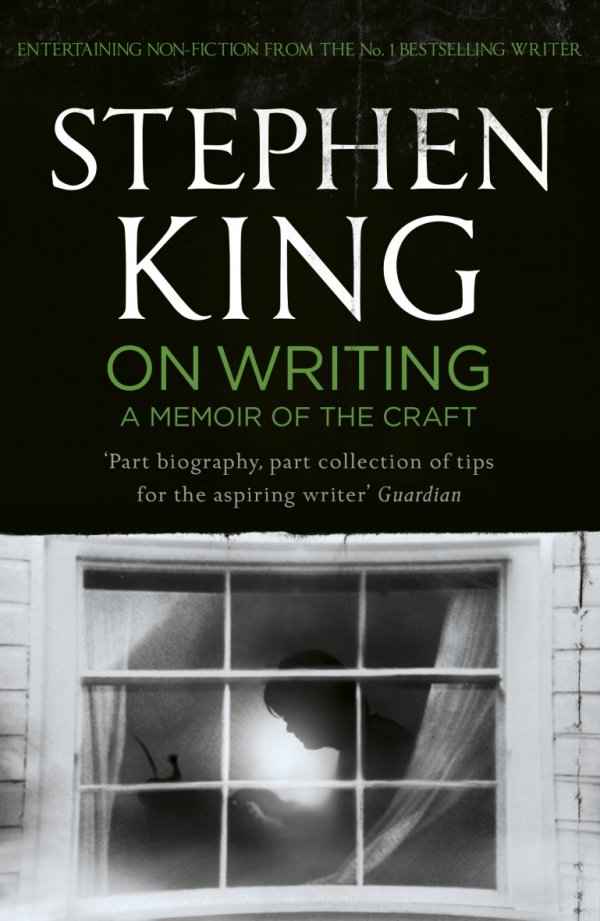
Perhaps the most-cited book on this list, On Writing is part-memoir, part-masterclass from one of America’s leading authors. Come for the vivid accounts of his childhood and youth — including his extended "lost weekend" spent on alcohol and drugs in the 1980s. Stay for the actionable advice on how to use your emotions and experiences to kickstart your writing, hone your skills, and become an author. Among the many craft-based tips are King’s expert takes on plot, story, character, and more.
From the book: “Amateurs sit and wait for inspiration, the rest of us just get up and go to work.”
2. The Kick-Ass Writer by Chuck Wendig
If you haven’t checked out Wendig’s personal blog, head over there now and bookmark it. Unfiltered, profane, and almost always right, Wendig has become a leading voice among online writing communities in the past few years. In The Kick-Ass Writer, he offers over 1,000 pearls of wisdom for authors, ranging from express writing tips to guidance on getting published. Written to be read in short bursts, we’re sure he’d agree that this is the perfect bathroom book for writers.
From the book: “I have been writing professionally for a lucky-despite-the-number 13 years. Not once — seriously, not once ever — has anyone ever asked me where I got my writing degree… Nobody gives two ferrets fornicating in a filth-caked gym sock whether or not you have a degree… The only thing that matters is, Can you write well?”
3. Find Your Voice by Angie Thomas
Taking advice from famous authors is not about imitation, but about finding your own voice. Take it from someone who knows: Thomas is the New York Times #1 Bestselling author of The Hate U Give, On the Come Up, and Concrete Rose. While she’s found her calling in YA literature, she has plenty of insight into finding your own voice in your genre of choice. Written in the form of a guided journal, this volume comes with step-by-step instructions, writing prompts, and exercises especially aimed at helping younger creatives develop the strength and skills to realize their vision.
From the book: “Write fearlessly. Write what is true and real to you.”
4. The Forest for the Trees by Betsy Lerner
Since its publication in 2000, The Forest for the Trees has remained an essential resource for authors at various stages in their careers. As an editor, Lerner gives advice not only on producing quality content, but also on how to build your career as an author and develop a winning routine — like how writers can be more productive in their creative process, how to get published, and how to publish well.
From the book: “The world doesn't fully make sense until the writer has secured his version of it on the page. And the act of writing is strangely more lifelike than life.”
Meet the top book editors, designers, and marketers on Reedsy
Taylor M.
Available to hire
Over twenty years of experience as both a writer and editor specializing in middle grade and young adult literature.
P. J. H.
Available to hire
Professional editor w/ 17 years experience. Love sci-fi/fantasy! Best-selling/award-winning author of 50+ books. Let's make your book shine!
Erin D.
Available to hire
20+ years of experience guiding picture book, middle grade, and YA authors. I'm a professor, author, and your creative cheerleader.
5. How to Write Like Tolstoy by Richard Cohen
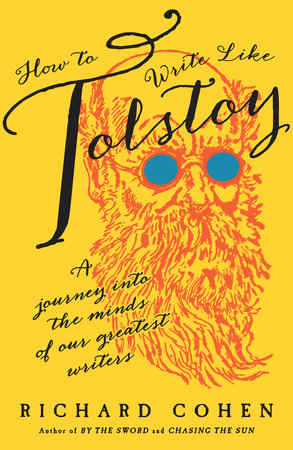 With its slightly deceptive title, How to Write Like Tolstoy is in fact a journey into the minds of some of literature’s most accomplished authors, from Shakespeare to Stephen King. Using, wherever possible, the words of the authors themselves, Cohen invites the reader to take part in the “concerns, techniques, tricks, flaws, and, occasionally, obsessions” that have informed some of the most beloved stories throughout literature. A note of caution: this isn’t an invitation to copy, but one to explore successful pathways towards your own bestseller.
With its slightly deceptive title, How to Write Like Tolstoy is in fact a journey into the minds of some of literature’s most accomplished authors, from Shakespeare to Stephen King. Using, wherever possible, the words of the authors themselves, Cohen invites the reader to take part in the “concerns, techniques, tricks, flaws, and, occasionally, obsessions” that have informed some of the most beloved stories throughout literature. A note of caution: this isn’t an invitation to copy, but one to explore successful pathways towards your own bestseller.
From the book: “Great writers can be inhibiting, and maybe after one has read a Scott Fitzgerald or Henry James one can’t escape imitating them; but more often such writers are inspiring.”
6. Feel Free: Essays by Zadie Smith
Smith is well-known for her fiction, but she is also a prolific essay writer. In Feel Free, she has gathered several essays on recent cultural and political developments and combined them with experiences from her own life and career. In “The I Who Is Not Me”, she explores how her own lived experience comes into play in her fiction writing, and how she manages to extrapolate that to comment on contemporary social contexts, discussing race, class, and ethnicity.
From the book: “Writing exists (for me) at the intersection of three precarious, uncertain elements: language, the world, the self. The first is never wholly mine; the second I can only ever know in a partial sense; the third is a malleable and improvised response to the previous two.”
Books about language and style
7. Dreyer’s English by Benjamin Dreyer
A staple book about writing well, Dreyer’s English serves as a one-stop guide to proper English, based on the knowledge that Dreyer — a senior copy editor at Random House — has accumulated throughout his career. From punctuation to tricky homophones, passive voice, and commas, the goal of these tools should be to facilitate effective communication of ideas and thoughts. Dreyer delivers this and then some, but not without its due dosage of humor and informative examples.
From the book: “A good sentence, I find myself saying frequently, is one that the reader can follow from beginning to end, no matter how long it is, without having to double back in confusion because the writer misused or omitted a key piece of punctuation, chose a vague or misleading pronoun, or in some other way engaged in inadvertent misdirection.”
8. The Elements of Style (Illustrated) by William Strunk, Jr., E. B. White, and Maira Kalman
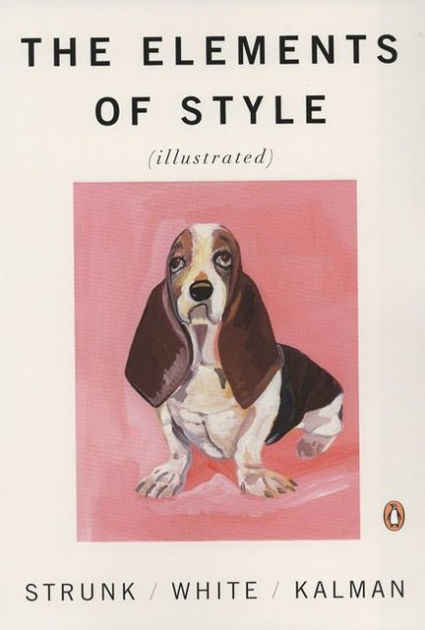
A perfect resource for visual learners, this illustrated edition of The Elements of Style has taken the classic style manual to a new, more accessible level but kept its main tenet intact: make every word tell. The written content by Strunk and White has long been referred to as an outline of the basic principles of style. Maira Kalman’s illustrations elevate the experience and make it a feast for both the mind and the eye.
From the book: “A sentence should contain no unnecessary words, a paragraph no unnecessary sentences, for the same reason that a drawing should have no unnecessary lines and a machine no unnecessary parts.”
9. Sin and Syntax by Constance Hale
If you’re looking to bring a bit of spunk into your writing, copy editor Constance Hale may hold the key. Whether you’re writing a work-related email or the next rap anthem, she has one goal: to make creative communication available to everyone by dispelling old writing myths and making every word count. Peppered with writing prompts and challenges, this book will have you itching to put pen to paper.
From the book: “Verbose is not a synonym for literary.”
10. The Sense of Style by Steven Pinker
Combining entertainment with intellectual pursuit, Pinker, a cognitive scientist and dictionary consultant, explores and rethinks language usage in the 21st century. With illustrative examples of both great and not-so-great linguistic constructions, Pinker breaks down the art of writing and gives a gentle but firm nudge in the right direction, towards coherent yet stylish prose. This is not a polemic on the decay of the English language, nor a recitation of pet peeves, but a thoughtful, challenging, and practical take on the science of communication.
From the book: “Why is so much writing so bad, and how can we make it better? Is the English language being corrupted by texting and social media? Do the kids today even care about good writing—and why should we care?”
11. Eats, Shoots, & Leaves: The Zero Tolerance Approach to Punctuation by Lynne Truss
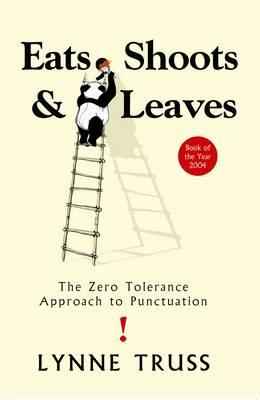 Getting down to the nitty-gritty details, Eats, Shoots & Leaves is a no-mercy tool kit for authors looking to master punctuation. As a former editor, Truss makes a case for proper punctuation and why we still need it, using examples from literature, history, and neighborhood signs to showcase the hilarious and sometimes disastrous consequences of getting it wrong.
Getting down to the nitty-gritty details, Eats, Shoots & Leaves is a no-mercy tool kit for authors looking to master punctuation. As a former editor, Truss makes a case for proper punctuation and why we still need it, using examples from literature, history, and neighborhood signs to showcase the hilarious and sometimes disastrous consequences of getting it wrong.
From the book: “A panda walks into a cafe. He orders a sandwich, eats it, then draws a gun and fires two shots in the air. "Why?" asks the confused waiter, as the panda makes towards the exit. The panda produces a badly punctuated wildlife annual and tosses it over his shoulder. "I'm a panda," he says, at the door. "Look it up." The waiter turns to the relevant entry and, sure enough, finds an explanation. Panda. Large black-and-white bear-like mammal, native to China. Eats, shoots and leaves.”
Books about story structure
12. Save the Cat! by Blake Snyder
Best known as a screenwriting manual, Save the Cat! is just as often named by authors as one of their most influential books about writing. The title comes from the tried-and-true trope of the protagonist doing something heroic in the first act (such as saving a cat) in order to win over the audience. Yes, it might sound trite to some — but others swear by its bulletproof beat sheet. More recently, there has been Save the Cat! Writes a Novel, which tailors its principles specifically to the literary crowd. (For a concise breakdown of the beat sheet, check this post out!)
From the book: “Because liking the person we go on a journey with is the single most important element in drawing us into the story.”
13. The Story Grid by Shawn Coyne
Shawn Coyne is a veteran editor with over 25 years of publishing experience, and he knows exactly what works and what doesn’t in a story — indeed, he’s pretty much got it down to a science. The Story Grid: What Good Editors Know outlines Coyne’s original “Story Grid” evaluation technique, which both writers and editors can use to appraise, revise, and ultimately improve their writing (in order to get it ready for publication). Coyne and his friend Tim Grahl also co-host the acclaimed Story Grid podcast, another great resource for aspiring writers.
From the book: “The Story Grid is a tool with many applications. It pinpoints problems but does not emotionally abuse the writer… it is a tool to re-envision and resuscitate a seemingly irredeemable pile of paper stuck in an attack drawer, and it can inspire an original creation.”
14. Story Structure Architect by Victoria Schmidt
For those who find the idea of improvising utterly terrifying and prefer the security of structures, this book breaks down just about every kind of story structure you’ve ever heard of. Victoria Schmidt offers no less than fifty-five different creative paths for your story to follow — some of which are more unconventional, or outright outlandish than others. The level of detail here is pretty staggering: Schmidt goes into the various conflicts, subplots, and resolutions these different story structures entail — with plenty of concrete examples! Suffice to say that no matter what kind of story you’re writing, you’ll find a blueprint for it in Story Structure Architect.
From the book: “When you grow up in a Westernized culture, the traditional plot structure becomes so embedded in your subconscious that you may have to work hard to create a plot structure that deviates from it… Understand this and keep your mind open when reading [this book]. Just because a piece doesn’t conform to the model you are used to, does not make it bad or wrong.”
15. The Writer's Journey by Christopher Vogler
Moving on, we hone in on the mythic structure. Vogler’s book, originally published in 1992, is now a modern classic of writing advice; though intended as a screenwriting textbook, its contents apply to any story of mythic proportions. In The Writer’s Journey: Mythic Structure for Writers, Vogler takes a page (literally) from Joseph Campbell’s Hero of a Thousand Faces to ruminate upon the most essential narrative structures and character archetypes of the writing craft. So if you’re thinking of drawing up an epic fantasy series full of those tropes we all know and love, this guide should be right up your alley.
From the book: “The Hero’s Journey is not an invention, but an observation. It is a recognition of a beautiful design… It’s difficult to avoid the sensation that the Hero’s Journey exists somewhere, somehow, as an external reality, a Platonic ideal form, a divine model. From this model, infinite and highly varied copies can be produced, each resonating with the essential spirit of the form.”
16. Story Genius by Lisa Cron
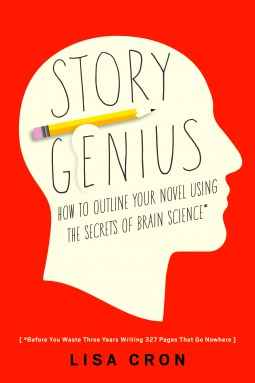 Offering a more scientific approach to writing, Cron’s Story Genius: How to Use Brain Science to Go Beyond Outlining and Write a Riveting Novel outlines how to use cognitive storytelling strategies to build a step-by-step compelling novel. An opponent to both flying by the seat of your pants and excessive plotting, Cron presents a powerful alternative based on the science of our brains and their inclination towards certain types of stories and storytelling. Trust us, the long title is there to catch your eye — the book itself quite rationally gives you the guidance to help you go from the first spark of a book idea through to the outlining and many drafting stages.
Offering a more scientific approach to writing, Cron’s Story Genius: How to Use Brain Science to Go Beyond Outlining and Write a Riveting Novel outlines how to use cognitive storytelling strategies to build a step-by-step compelling novel. An opponent to both flying by the seat of your pants and excessive plotting, Cron presents a powerful alternative based on the science of our brains and their inclination towards certain types of stories and storytelling. Trust us, the long title is there to catch your eye — the book itself quite rationally gives you the guidance to help you go from the first spark of a book idea through to the outlining and many drafting stages.
From the book: “We don't turn to story to escape reality. We turn to story to navigate reality.”
17. Book Craft by Derek Murphy
Last but not least in our structure section, we have Book Craft by Derek Murphy over at Creativindie (and authors who find his advice useful should be sure to check out his blog as well!). This hands-on guide has everything a just-starting-out author could ever need: detailed plotting templates, key strategies for building tension, and tools for developing deeper characters and more compelling dynamics. Whether you're aiming to hook readers, trim your publishing budget, or break into trad pub, Book Craft provides the practical, step-by-step methods to help you succeed — endorsed by a seasoned editor and designer with decades of experience.
From the book: “Writing isn’t about sitting around waiting for the muse. It’s about showing up every day and doing the work until the magic shows up.”
Books about overcoming obstacles as a writer
18. Bird by Bird by Anne Lamott
Like Stephen King’s book about writing craft, this work from acclaimed novelist and nonfiction writer Anne Lamott also fuses elements of a memoir with invaluable advice on the writer’s journey. Particularly known for popularizing the concept of “shitty first drafts”, Bird by Bird was recently recommended by editor Jennifer Hartmann in her Reedsy Live webinar for its outlook take on book writing. She said, “This book does exactly what it says it will do: it teaches you to become a better writer. [Lamott] is funny and witty and very knowledgeable.”
From the book: “Perfectionism is the voice of the oppressor, the enemy of the people. It will keep you cramped and insane your whole life, and it is the main obstacle between you and a shitty first draft.”
19. Take Off Your Pants by Libbie Hawker
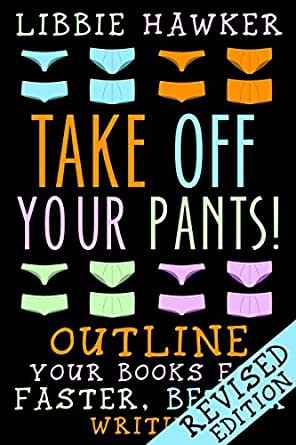 Of all the titles on this list, Take Off Your Pants has to be the most eye-catching. But rather than remarking on the joys of working from home, this title actually alludes to being a pantser: a writer who dives straight into their draft with little more than an idea. Hawker doesn’t dissuade writers from “pantsing,” but does note that some sense of structure tends to help, at least in her experience. This book details her process for planning a story, offering various tools and techniques for nailing your book before you start typing.
Of all the titles on this list, Take Off Your Pants has to be the most eye-catching. But rather than remarking on the joys of working from home, this title actually alludes to being a pantser: a writer who dives straight into their draft with little more than an idea. Hawker doesn’t dissuade writers from “pantsing,” but does note that some sense of structure tends to help, at least in her experience. This book details her process for planning a story, offering various tools and techniques for nailing your book before you start typing.
From the book: “When it comes to the eternal quandary of pantsing or plotting, you can keep a foot in each camp. But if your goals will require you to write with speed and confidence, an effective outline will be your best friend.”
20. Writing into the Dark by Dean Wesley Smith
And for those who eschew structure altogether, we’ll now refer you to this title from profile science fiction author Dean Wesley Smith. Having authored a number of official Star Trek novels, he definitely knows what he’s talking about when he encourages writers to go boldly into the unknown with an approach to writing books that doesn’t necessarily involve an elaborate plan. It might not be your action plan, but it can be a fresh perspective to get out of the occasional writer’s block.
From the book: “Imagine if every novel you picked up had a detailed outline of the entire plot… Would you read the novel after reading the outline? Chances are, no. What would be the point? You already know the journey the writer is going to take you on. So, as a writer, why do an outline and then have to spend all that time creating a book you already know?”
21. No Plot, No Problem by Chris Baty
If you’re procrastinating to the point where you haven’t even started your novel yet, NaNoWriMo founder Chris Baty is your guy! No Plot, No Problem is a “low-stress, high-velocity” guide to writing a novel in just 30 days (yup, it’s great prep for the NaNoWriMo challenge). You’ll get tons of tips on how to survive this rigorous process, from taking advantage of your initial momentum to persisting through moments of doubt.
Whether you’re participating in everyone’s favorite November write-a-thon or you just want to bang out a novel that’s been in your head forever, Baty will help you cross that elusive finish line.
From the book: “A rough draft is best written in the steam-cooker of an already busy life. If you have a million things to do, adding item number 1,000,001 is not such a big deal.”
22. The 90-Day Novel by Alan Watt
And for those who think 30 days is a bit too steam cooker-esque, there’s always Alan Watt’s more laid-back option. In The 90-Day Novel, Watt provides a unique three-part process to assist you with your writing. The first part provides assistance in developing your story’s premise, the second part helps you work through obstacles to execute it, and the third part is full of writing exercises to unlock the “primal forces” of your story — in other words, the energy that will invigorate your work and incite readers to devour it like popcorn at the movies.
From the book: “Why we write is as important as what we write. Grammar, punctuation, and syntax are fairly irrelevant in the first draft. Get the story down… fast. Get out of your head, so you can surprise yourself on the page.”
23. The War of Art by Steven Pressfield
If you feel like you’re constantly in the trenches of your “inner creative battle,” The War of Art is the book for you. Pressfield emphasizes the importance of breaking down creative barriers — what he calls “Resistance” — in order to defeat your demons (i.e., procrastination, self-doubt, etc.) and fulfill your potential. Though some of his opinions are no doubt controversial (he makes repeated claims that almost anything can be procrastination, including going to the doctor), this book is the perfect remedy for prevaricating writers who need a little bit of tough love.
From the book: “Most of us have two lives. The life we live, and the unlived life within us. Between the two stands Resistance.”
Free course: Create a Solid Writing Routine
Learn to banish your procrastination gremlins and finish writing your book. Get started now.
Books about writing as a lifestyle and career
24. Steal Like An Artist by Austin Kleon
As Kleon notes in the first section of Steal Like an Artist, this title obviously doesn’t refer to plagiarism. Rather, it acknowledges that art cannot be created in a vacuum, and encourages writers (and all other artists) to be open and receptive to all sources of inspiration. By “stealing like an artist,” writers can construct stories that already have a baseline of familiarity for readers, but with new twists that keep them fresh and exciting.
From the book: “If we’re free from the burden of trying to be completely original, we can stop trying to make something out of nothing, and we can embrace influence instead of running away from it.”
25. Mouth Full of Blood by Toni Morrison
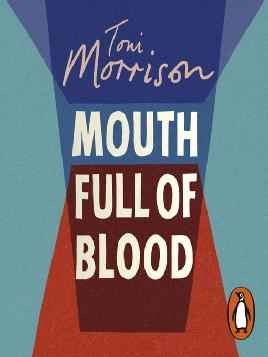 The full title of this work, Mouth Full of Blood: Essays, Speeches, Meditations, gives you a pretty good idea of what to expect from one of the most influential and important voices in modern literature. In this collection, the late Nobel Prize winner comments on race, art, and politics over the course of four decades, and offers invaluable insight into the craft as well as the powerful potential of writing. Revisiting and reassessing some of her most famous titles, Morrison discusses revisionist perspectives and their place in the American literary landscape.
The full title of this work, Mouth Full of Blood: Essays, Speeches, Meditations, gives you a pretty good idea of what to expect from one of the most influential and important voices in modern literature. In this collection, the late Nobel Prize winner comments on race, art, and politics over the course of four decades, and offers invaluable insight into the craft as well as the powerful potential of writing. Revisiting and reassessing some of her most famous titles, Morrison discusses revisionist perspectives and their place in the American literary landscape.
From the book: “A writer's life and work are not a gift to mankind; they are its necessity.”
26. Writing Down the Bones by Natalie Goldberg
No matter what stage you’re at in your writing career, Goldberg’s Writing Down the Bones will help you write more skillfully and creatively. With suggestions, encouragement, and valuable advice on the many aspects of the writing craft, Goldberg doesn’t shy away from making the crucial connection between writing and adding value to your life. Covering a range of topics including taking notes of your initial thoughts, listening, overcoming doubt, choosing where to write, and the selection of your verbs, this guide has plenty to say about the minute details of writing, but excels at exploring the author life.
From the book: “Write what disturbs you, what you fear, what you have not been willing to speak about. Be willing to be split open.”
27. Zen in the Art of Writing by Ray Bradbury
What does it take to become a great author? According to the beloved writer Ray Bradbury, it takes zest, gusto, curiosity, as well as a spirit of adventure. Sharing his wisdom and experiences as one of the most prolific writers in America, Bradbury gives plenty of practical tips and tricks on how to develop ideas, find your voice, and create your own style in this thoughtful volume. In addition to that, this is also an insight into the life and mind of this prolific writer, and a celebration of the act of writing.
From the book: “Every morning I jump out of bed and step on a land mine. The land mine is me. After the explosion, I spend the rest of the day putting the pieces back together. Now, it's your turn. Jump!”
28. The Kite and the String by Alice Mattison
One of the most common dilemmas an author faces is the struggle between spontaneity and control. Literary endeavors need those unexpected light-bulb moments, but a book will never be finished if you rely solely on inspiration. In The Kite and the String, Mattison has heard your cry for help and developed a guide for balancing these elements throughout the different stages of writing a novel or a memoir. Sure, there may be language and grammar rules that govern the way you write, but letting a bit of playfulness breathe life into your writing will see it take off to a whole new level. On the other hand, your writing routine, solitude, audience, and goal-setting will act as the strings that keep you from floating too far away.
From the book: "Don’t make yourself miserable wishing for a kind of success that you wouldn’t enjoy if you had it."
29. How to Become a Successful Indie Author by Craig Martelle
This one’s for all the indie authors out there! Even if you’ve already self-published a book, you can still learn a lot from this guide by Craig Martelle, who has dozens of indie books — “over two and a half million words,” as he puts it — under his belt. With patience and expertise, Martelle walks you through everything you need to know: from developing your premise to perfecting your writing routine, to finally getting your work to the top of the Amazon charts.
From the book: “No matter where you are on your author journey, there’s always a new level you can reach. Roll up your sleeves, because it’s time to get to work.”
Free course: Amazon Algorithms
Send your book to the top of its category by using Amazon's recommendation system to your advantage. Get started now.
30. How to Market a Book by Ricardo Fayet
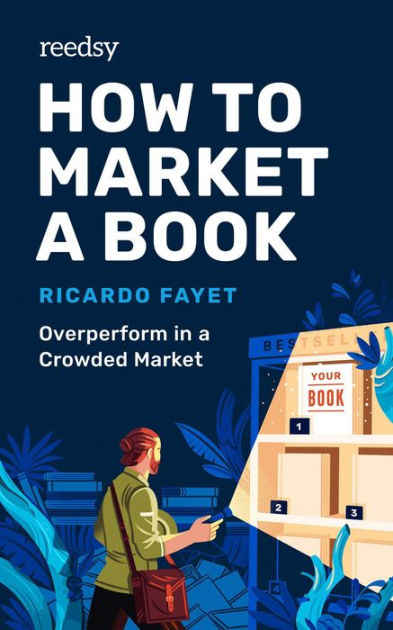 Marketing is one of the most important factors to getting your work out to the right audience — so it’s important for all authors (indie and otherwise) to master this task. Luckily, Reedsy’s co-founder Ricardo Fayet has just the thing to help you: his guide, How to Market a Book: Overperform in a Crowded Market, breaks down what seems like a full-time job into clear and manageable steps so that self-publishing authors can make sure that their writing gets its time in the sun. If you’re not an indie author and are either looking to publish your first book, improve your sales, or develop your author platform, pick this book up anyway to get a better understanding of how publishing, marketing, and selling books works in the 21st century.
Marketing is one of the most important factors to getting your work out to the right audience — so it’s important for all authors (indie and otherwise) to master this task. Luckily, Reedsy’s co-founder Ricardo Fayet has just the thing to help you: his guide, How to Market a Book: Overperform in a Crowded Market, breaks down what seems like a full-time job into clear and manageable steps so that self-publishing authors can make sure that their writing gets its time in the sun. If you’re not an indie author and are either looking to publish your first book, improve your sales, or develop your author platform, pick this book up anyway to get a better understanding of how publishing, marketing, and selling books works in the 21st century.
From the book: “Here’s the thing: authors don’t find readers; readers find books. [...] Marketing is not about selling your book to readers. It’s about getting readers to find it.”
31. Everybody Writes by Ann Handley
The full title of Handley’s all-inclusive book on writing is actually Everybody Writes: Your Go-To Guide to Creating Ridiculously Good Content — which should tell you something about its broad appeal. Not only does Handley have some great ideas on how to plan and produce a great story, but she also provides tips on general content writing, which comes in handy when it’s time to build your author platform or a mailing list to promote your book. As such, Everybody Writes is nothing like your other books on novel writing — it’ll make you see writing in a whole new light.
From the book: “In our world, many hold a notion that the ability to write, or write well, is a gift bestowed on a chosen few. That leaves us thinking there are two kinds of people: the writing haves — and the hapless, for whom writing well is a hopeless struggle, like trying to carve marble with a butter knife. But I don’t believe that, and neither should you.”
Free course: Author Mailing Lists
Acquire more readers, sell more books, and make more money with the only indispensable tool in the book marketer's arsenal. Get started now.
Books on writing poetry
32. Madness, Rack, and Honey by Mary Ruefle
With a long history of crafting and lecturing about poetry, Ruefle invites the reader of Madness, Rack, and Honey to immerse themselves into its beauty and magic. In a powerful combination of lectures and musings, she expertly explores the mind and craft of writers while excavating the magical potential of poetry. Often a struggle between giving and taking, poetry is, according to Ruefle, a unique art form that reveals the innermost workings of the human heart.
From the book: “In one sense, reading is a great waste of time. In another sense, it is a great extension of time, a way for one person to live a thousand and one lives in a single lifespan, to watch the great impersonal universe at work again and again”
33. Threads by Sandeep Parmar, Nisha Ramayya, and Bhanu Kapil
If you’re looking for something that explores the philosophical aspects of writing, Threads asks big questions about writing and the position of the writer in an industry that has largely excluded marginalized voices. Where does the writer exist in relation to its text and, particularly in the case of poetry, who is the “I”? Examining the common white, British, male lens, this collection of short essays will make it hard for you not to critically consider your own perceptions and how they affect your writing process.
From the book: “It is impossible to consider the lyric without fully interrogating its inherent promise of universality, its coded whiteness.”
34. The Hatred of Poetry by Ben Lerner
Despite its eye-catching title, this short essay is actually a defense of poetry. Lerner begins with his own hatred of the art form, and then moves on to explore this love-hate dichotomy that actually doesn’t seem to be contradictory. Rather, such a multitude of emotions might be one of the reasons that writers and readers alike turn to it. With its ability to evoke feelings and responses through word-play and meter, poetry has often been misconceived as inaccessible and elitist; this is a call to change that perception.
From the book: “All I ask the haters — and I, too, am one — is that they strive to perfect their contempt, even consider bringing it to bear on poems, where it will be deepened, not dispelled, and where, by creating a place for possibility and present absences (like unheard melodies), it might come to resemble love.”
35. Poemcrazy by Susan G. Wooldridge
If you’ve ever felt that the mysterious workings of poetry are out of your reach and expressly not for you, Wooldridge is here to tell you that anyone who wants to can write poetry. An experienced workshop leader, she will help you find your inner voice and to express it through the written word. Giving you advice on how to think, use your senses, and practice your writing, Wooldrige will have you putting down rhyme schemes before you know it.
From the book: “Writing a poem is a form of listening, helping me discover what's wrong or frightening in my world as well as what delights me.”
36. Writing Better Lyrics by Pat Pattison
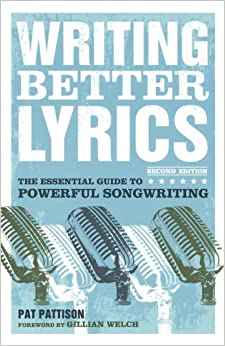 Writing lyrics may not strictly be poetry, but it’s certainly in the same realm. Whether you’re itching to get up on stage or someone who prefers your writing to be a bit more behind the scenes, Writing Better Lyrics will help make your words sing and reach new audiences. Breaking down seventeen songs, examining the distinct elements that make them so effective, and outlining more than thirty lyrics writing exercises, Pattison gives you the tools and the confidence to start crafting your own chart-toppers (or bestsellers).
Writing lyrics may not strictly be poetry, but it’s certainly in the same realm. Whether you’re itching to get up on stage or someone who prefers your writing to be a bit more behind the scenes, Writing Better Lyrics will help make your words sing and reach new audiences. Breaking down seventeen songs, examining the distinct elements that make them so effective, and outlining more than thirty lyrics writing exercises, Pattison gives you the tools and the confidence to start crafting your own chart-toppers (or bestsellers).
From the book: “Don't be afraid to write crap — it makes the best fertilizer. The more of it you write, the better your chances are of growing something wonderful.”
Books about writing nonfiction
37. On Writing Well by William Zinsser
Going strong with its 30th-anniversary edition, On Writing Well: The Classic Guide to Writing Nonfiction is an evergreen resource for nonfiction writers which breaks down the fundamental principles of written communication. As a bonus, the insights and guidelines in this book can certainly be applied to most forms of writing, from interviewing to camp-fire storytelling. Beyond giving tips on how to stay consistent in your writing and voice, how to edit, and how to avoid common pitfalls, Zinsser can also help you grow as a professional writer, strengthening your career and taking steps in a new direction.
From the book: “Don’t try to visualize the great mass audience. There is no such audience—every reader is a different person.”
38. Essays by Lydia Davis
Ironically enough, this rather lengthy book is a celebration of brevity. As one of the leading American voices in flash-fiction and short-form writing, Davis traces her literary roots and inspirations in essays on everything, ranging from the mastodonic work of Proust to minimalism. In both her translations and her own writing, she celebrates experimental writing that stretches the boundaries of language. Playing with the contrast between what is said and what is not, this collection of essays is another tool to the writing shed to help you feel and use the power of every word you write.
From the book: “Free yourself of your device, for at least certain hours of the day — or at the very least one hour. Learn to be alone, all alone, without people, and without a device that is turned on. Learn to experience the purity of that kind of concentration. Develop focus, learn to focus intently on one thing, uninterrupted, for a long time.”
39. Essayism by Brian Dillon
In this volume, Dillon explores the often overlooked genre of essay writing and its place in literature’s past, present, and future. He argues that essays are an “experiment in attention” but also highlights how and why certain essays have directly impacted the development of the cultural and political landscape, from the end of the Middle Ages until the present day. At its heart, despite its many forms, subject areas, and purposes, essayism has its root in self-exploration. Dip in and out of Dillon’s short texts to find inspiration for your own nonfiction writing.
From the book: “What exactly do I mean, even, by 'style'? Perhaps it is nothing but an urge, an aspiration, a clumsy access of admiration, a crush.”
40. Naked, Drunk, and Writing by Adair Lara
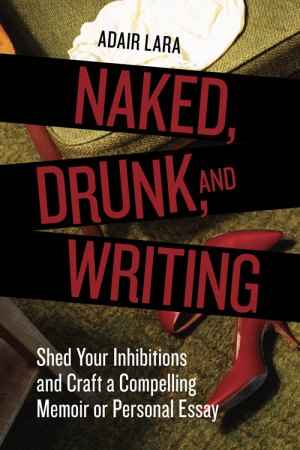 Writing about yourself can be one of the hardest things to do as a writer (even though you have all the material right there in front of you) since doing so involves showing your vulnerabilities. And yet, leaving a bit of yourself on the page might produce brilliant and resounding writing, especially if you follow the advice that Lara — an award-winning author, columnist, and writing coach — is dishing out in Naked, Drunk, and Writing. A must for any aspiring memoirist, essayist, or columnist, this book contains detailed breakdowns of how to outline, draft, and edit different forms of autobiographical writing (like a memoir, for instance) as well as plenty of inspiration to get you going.
Writing about yourself can be one of the hardest things to do as a writer (even though you have all the material right there in front of you) since doing so involves showing your vulnerabilities. And yet, leaving a bit of yourself on the page might produce brilliant and resounding writing, especially if you follow the advice that Lara — an award-winning author, columnist, and writing coach — is dishing out in Naked, Drunk, and Writing. A must for any aspiring memoirist, essayist, or columnist, this book contains detailed breakdowns of how to outline, draft, and edit different forms of autobiographical writing (like a memoir, for instance) as well as plenty of inspiration to get you going.
From the book: “Write it down. Whatever it is, write it down. Chip it into marble. Type it into Microsoft Word. Spell it out in seaweeds on the shore. We are each of us an endangered species, delicate as unicorns.”
With a few of these books in your arsenal, you’ll be penning perfect plots in no time! And if you’re interested in learning more about the editing process, check our post on books on editing next!

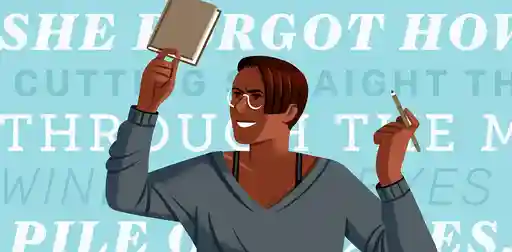
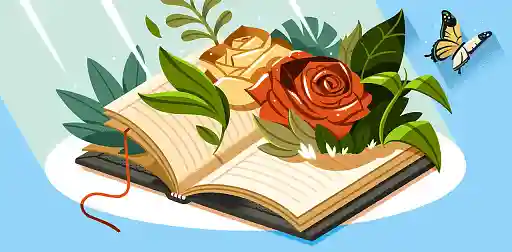
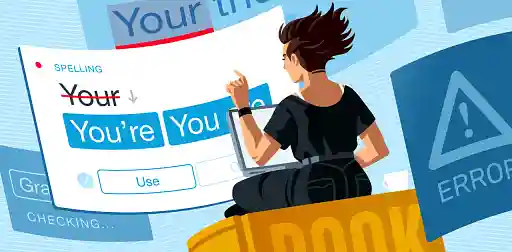

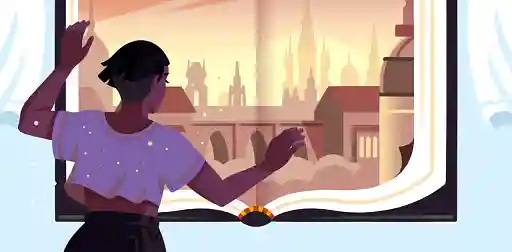
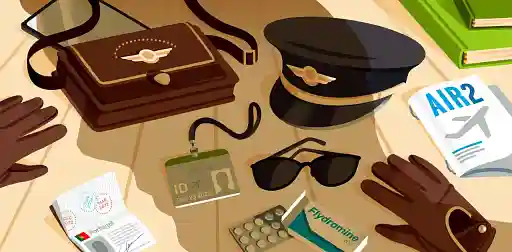


1 response
ZUrlocker says:
11/03/2019 – 19:46
I'm familiar with several of these books. But for new authors, I urge you caution. It is very tempting to read so many books about writing that you never get around to writing. (I did this successfully for many years!) So I will suggest paring it down to just two books: Stephen King on Writing and Blake Snyder Save the Cat. Snyder's book is mostly about screenwriting, so you could also consider Save the Cat Writes a Novel by Jessica Brody. Best of luck!